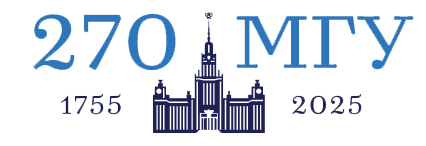You are here
Open Laboratory of Information Technologies
Head of the laboratory: Sukhomlin Vladimir, Professor, Dr.Sc.
The Laboratory of Open Information Technologies (OIT), Faculty of Computational Mathematics and Cybernetics, Moscow State University (CMC MSU), was founded in 1998 by Professor V.A.Sukhomlin. The Laboratory is a scientific and educational unit of the CMC Faculty.
Staff members:
- Bazhenova Irina, Senior Research Fellow, PhD
- Namiot Dmitry, Senior Research Fellow, PhD
- Romanov Vladimir, Senior Research Fellow, PhD
- Yakushin Aleksey, Senior Research Fellow, PhD
- Vovk Elena, Research Fellow
- Guryev Dmitry, Research Fellow
- Denisov Viktor, Research Fellow
- Laponina Olga, Research Fellow
- Dmitriev Leonid, Researcher
- Ivanov Nikolay, Leading Programmer
- Malinovskaya Olga, Leading Programmer
- Nikulina Elena, Leading Mathematician
- Parchevskaya Lyubov, Leading Mathematician
- Morina Tatiana, Programmer
- Bodunov Nikolay, Electronic
- Morkovin Evgeny, Programmer
- Lukyanov Kirill, Technician
The objectives of the laboratory OIT
The main objectives of the Laboratory OIT are:
- implementation of research and design works in the field of new information, telecommunication and educational technologies to create a modern scientific framework of the educational process and increase scientific, technical and professional training of students;
- development of new special education programs, courses, training and practical works and workshops for training students on current scientific and technical areas of IT.
Main scientific directions
The main tasks of teaching and research of the Laboratory are:
- implementation of research and design works, including those that presume an international cooperation, in the field of development and standardization of new information, telecommunication and educational technologies;
- development and implementation of the educational process in the frame of new educational programs, special training courses, training and practical work and seminars, including the process for master and further education;
- development and testing of advanced forms, methods and training technologies, including the use of distance learning, multimedia technologies, computer simulation and virtual reality;
- scientific, methodological and organizational support for learning processes of master and further education.
Areas of scientific activity
The Laboratory OIT conducts research and applied studies in the following areas:
- technologies and services of the Global Information Infrastructure;
- Internet technologies and grid;
- environment and tools for developing systems and software;
- multimedia technology and virtual reality;
- functional-oriented superproductive platform;
- management of network resources;
- IT security management;
- conformance testing of IT.
Recent papers:
- D.Namiot and M.A.Schneps-Schneppe, Customized check-in procedures // Smart Spaces and Next Generation Wired /Wireless Networking. Lecture Notes in Computer Science, Berlin: Springer, no 6869. pp. 160-164, 2011.
- D.Namiot and M.A.Schneps-Schneppe, About Location-aware Mobile Messages: Expert System Based on WiFi Spots // Next Generation Mobile Applications, Services and Technologies (NGMAST), 2011 5th International Conference on. Cardiff: IEEE Xplore Digital library, pp. 48-53, 2011.
- D.Namiot and M.A.Schneps-Schneppe, Advertising in social networks: business-oriented check-ins // AFIN 2011, The Third International Conference on Advances in Future Interne. Nice: IARIA, pp. 20-24, 2011.
- D.Namiot and M.A.Schneps-Schneppe, A new approach to advertising in social networks - business-centric check-ins // Intelligence in Next Generation Networks (ICIN), 2011 15th International Conference on. Berlin: IEEE Xplore Digital library, pp. 92-96, 2011.
Recent publications:
• 2013
- Namiot D. Social streams based on network proximity // International Journal of Space-Based and Situated Computing. 2013. 3. N 4. P. 234-242.
- Namiot D., Shneps-Shneppe M. Analysis of trajectories in mobile networks based on data about the network proximity // Automatic Control and Computer Sciences. 2013. 47. N 3. P. 147-155.
- Namiot D., Schneps-Schneppe M. Smart Cities software from the developer's point of view // Applied Information and Communication Technologies (AICT 2013). Jelgava, Latvia: LUA Jelgava, 2013. P. 230-237.
- Namiot D., Sneps-Sneppe M. Discovery of convoys in network proximity log // Internet of Things, Smart Spaces, and Next Generation Networking. Lecture Notes in Computer Science. N 8121. Heidelberg, Germany: Springer, 2013. P. 139-150.
- Namiot D., Sneps-Sneppe M. Geofence and network proximity // Internet of Things, Smart Spaces, and Next Generation Networking. Lecture Notes in Computer Science. N 8121. Heidelberg, Germany: Springer, 2013. P. 117-121.
- Sneps-Sneppe M., Namiot D. Smart Cities software: customized messages for mobile subscribers // Wireless Access Flexibility. Lecture Notes in Computer Science. N 8072. Berlin, Germany: Springer, 2013. P. 25-36.
- Sneps-Sneppe M., Namiot D. Spotique: a new approach to local messaging // Wired/Wireless Internet Communication. Lecture Notes in Computer Science. N 7889. Berlin, Germany: Springer, 2013. P. 192-203.
• 2012
- Namiot D. A peer-to-peer model for location sharing services // Сб. трудов VII Международной научно-практической конференции "Современные информационные технологии и ИТ-образование". М.: ИНТУИТ.РУ, 2012. C. 596-604.
- Namiot D., Sneps-Sneppe M. M2M applications and open API: what could be next? // Internet of Things, Smart Spaces, and Next Generation Networking. Lecture Notes in Computer Science. N 7469. Berlin, Germany: Springer, 2012. P. 429-439.
- Namiot D., Sneps-Sneppe M. Where are they now - safe location sharing // Internet of Things, Smart Spaces, and Next Generation Networking. Lecture Notes in Computer Science. N 7469. Berlin: Springer, 2012. P. 63-74.



